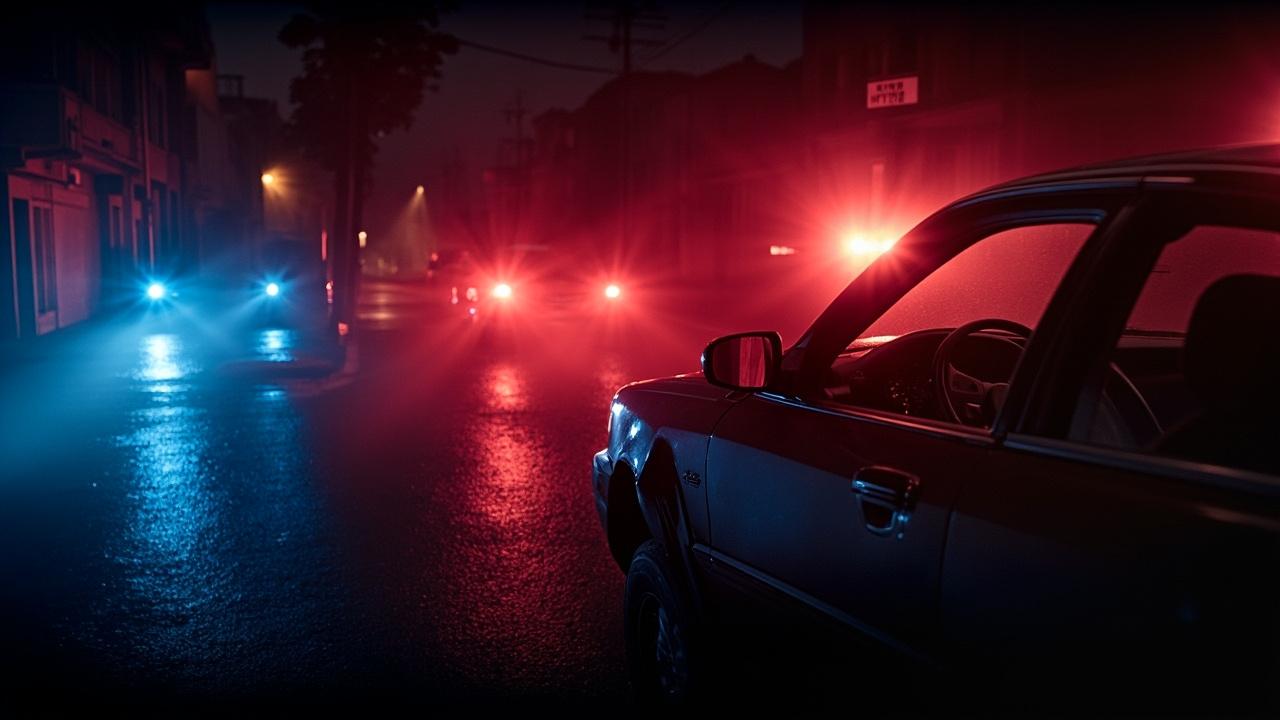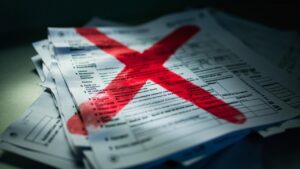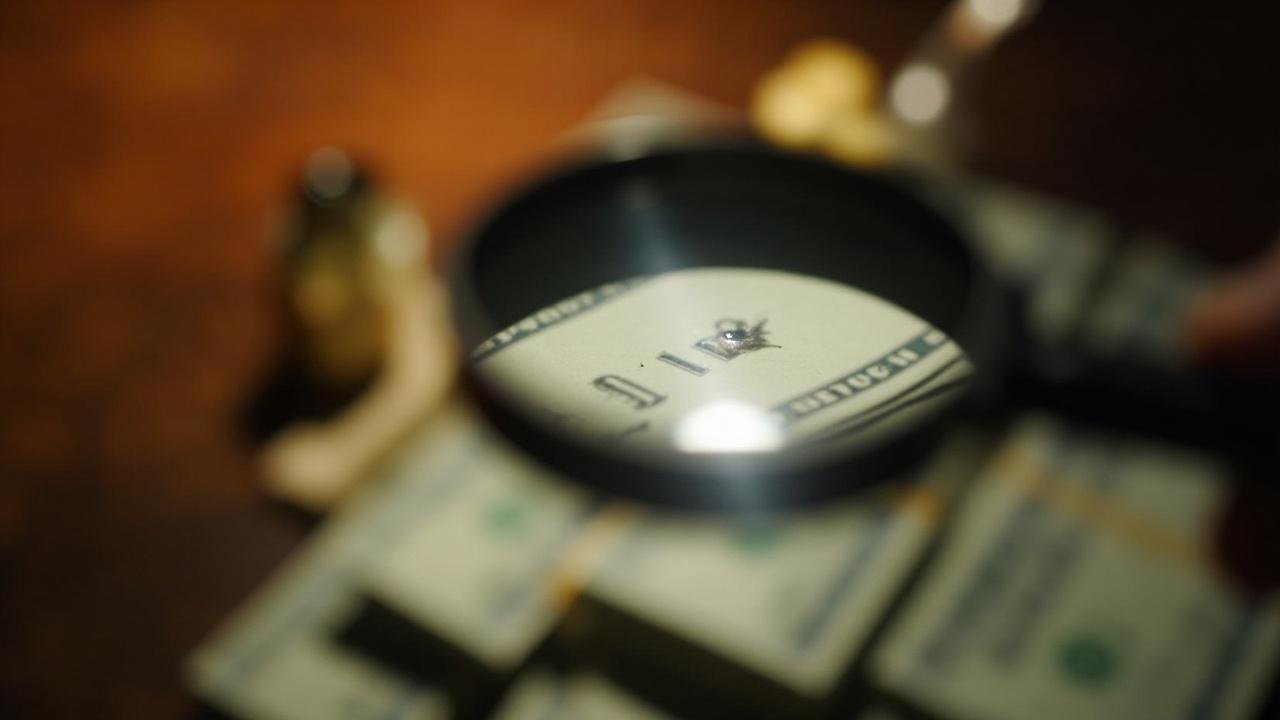Introduction
DUI defense Los Angeles starts the moment those flashing red and blue lights appear in your rearview mirror. A wave of panic washes over you. Your heart pounds in your chest.
You pull over, desperately trying to recall everything you’ve consumed in the last few hours. The officer approaches, and suddenly, your world feels like it’s spiraling out of control. Being pulled over for a suspected DUI in Los Angeles is a terrifying experience, filled with uncertainty about what comes next.
The fear is understandable. A DUI conviction in California carries significant consequences, impacting your driving privileges, finances, and even your freedom. You could face license suspension, hefty fines, increased insurance rates, mandatory alcohol education programs, and even jail time. The repercussions can extend beyond the legal realm, affecting your employment, reputation, and personal relationships. That’s why it is so important to take quick action to protect your rights.
This article outlines five *immediate* steps you must take to safeguard your future and begin to explore your defense options. These steps are crucial from the moment of the stop, long before you even consider the complexities of building a defense in court. Understanding and acting on these steps can significantly influence the outcome of your case and minimize the potential damage to your life.
Step 1
When you see those flashing lights in your rearview mirror in Los Angeles, it’s understandable to feel a surge of panic. However, maintaining your composure is the first and most crucial step. It’s paramount to remember that every interaction you have with the officer is being recorded, either by a dashcam, bodycam, or both.
Any display of aggression, argumentativeness, or even excessive nervousness can be interpreted negatively and used against you. Even though it might be difficult, focusing on staying calm and respectful can significantly impact how the situation unfolds.
The officer will likely ask for your driver’s license, vehicle registration, and proof of insurance. Providing these documents promptly and politely demonstrates cooperation. Beyond this basic exchange, however, it’s essential to exercise your right to remain silent.
This is a fundamental right protected by the Fifth Amendment. While you are legally obligated to identify yourself and provide the requested documents, you are not required to answer any further questions. Responding to seemingly innocuous inquiries about where you’re coming from, where you’re going, or if you’ve had anything to drink can provide the officer with grounds to suspect you of driving under the influence.
It is imperative to contact a professional for DUI defense Los Angeles immediately. While this might seem counterintuitive or even rude, it is a perfectly legal and acceptable way to protect your rights. Remember, the goal is to minimize the amount of information you provide that could be used to build a case against you.
| Action | Importance |
|---|---|
| Remain Calm | Prevents negative interpretation of behavior. |
| Provide Documents | Fulfills legal obligation and demonstrates cooperation. |
| Invoke Right to Silence | Protects against self-incriminating statements. |
Step 2
When those flashing lights appear, it’s natural to feel pressured and want to cooperate fully with the officer. However, when it comes to Field Sobriety Tests (FSTs), understanding your legal options can significantly impact your case.
These tests, often administered roadside, are designed to assess your balance, coordination, and cognitive functions. Common examples include the Horizontal Gaze Nystagmus (HGN) test, which examines involuntary eye movements; the Walk-and-Turn test, which requires you to walk a straight line heel-to-toe; and the One-Leg Stand test, where you must balance on one foot while counting.
It’s crucial to understand that, in California, these FSTs are entirely voluntary. You have the right to refuse to participate without facing criminal penalties. While refusing may lead to immediate arrest, it’s important to consider the alternative.
FSTs are notoriously unreliable and subjective, even for sober individuals. Factors like road conditions, weather, and even an officer’s personal interpretation can influence the results. Someone with a pre-existing medical condition or simply feeling nervous might struggle with these tests, leading to a false indication of impairment.
Refusing FSTs limits the amount of evidence the prosecution can use against you. While the officer may still arrest you based on other observations, such as slurred speech or the smell of alcohol, declining the tests prevents them from using your performance on these subjective assessments to build their case.
Remember, your primary goal is to protect your rights, and sometimes, that means politely but firmly declining to participate in voluntary procedures. If you are facing a DUI charge, consider consulting with an expert regarding dui defense los angeles for effective strategies.
Step 3
The moment you are placed under arrest, the game changes. You are no longer simply a person being investigated; you are now formally accused of a crime. At this juncture, law enforcement is required to inform you of your Miranda rights, which include the right to remain silent and the right to an attorney.
This is not merely a formality; it’s a cornerstone of your legal protection. It signifies that anything you say can and will be used against you in court. The most critical aspect of these rights, especially when navigating a stressful situation like a DUI arrest, is your right to an attorney.
Having legal representation from the very beginning can significantly impact the outcome of your case. A skilled attorney experienced in DUI defense Los Angeles can immediately begin assessing the circumstances of your arrest. They can analyze the legality of the stop, the administration of field sobriety tests, and the accuracy of any chemical tests conducted.
Remember, you are not obligated to navigate this complex legal landscape alone. Many people feel pressured to answer questions or explain themselves, hoping to somehow talk their way out of the situation. This is almost always a mistake.
Your attorney serves as your advocate and shield, protecting you from potentially incriminating yourself. They can communicate with law enforcement on your behalf, ensuring that your rights are respected and that you don’t inadvertently say something that could damage your case. Moreover, an attorney can begin gathering evidence, interviewing witnesses, and building a strong defense strategy tailored to your specific circumstances.
They also have a deeper understanding of the legal procedures and can guide you through the complexities of the court system. It’s best to start with a consultation in order to understand your legal options and have a better understanding of how to move forward.
- Assessing the legality of the initial stop.
- Evaluating the proper administration of field sobriety and chemical tests.
- Negotiating with the prosecution on your behalf.
- Representing you in court during hearings and trial.
Step 4
Your recollection of the events surrounding your DUI arrest is critical to your defense. Immediately after being released, before memories fade or become distorted, dedicate time to meticulously documenting everything you can recall about the traffic stop. This detailed record can serve as a vital resource for your attorney as they build your defense strategy. The sooner you create this documentation, the more accurate and reliable it will be.
Key Details to Include
When reconstructing the events, strive for thoroughness. Note the precise time and location of the stop, including street names and landmarks. Describe the weather conditions (rain, fog, clear skies), as these can impact visibility and potentially influence the officer’s perception of your driving.
Detail the lighting conditions – were streetlights present, or was the area poorly lit? Make a note of any unusual road conditions, such as potholes or uneven pavement, that might have affected your ability to maintain a steady course. Every minute detail is important when trying to build a solid DUI defense Los Angeles.
Officer Interactions and Sobriety Tests
Record every interaction you had with the officer, including their demeanor, the questions they asked, and your responses. If you submitted to field sobriety tests (FSTs), document your performance on each test, no matter how insignificant it may seem. Even if you refused the tests, make sure you document that you refused. Be as specific as possible in recalling what the officer said and how they conducted the tests. Were the instructions clear?
Did the officer follow proper procedures? Did any environmental factors (e.g. uneven ground) affect your ability to perform the tests? Also, note if the officer said anything about your performance, or made any comments about your appearance.

Finally, and if applicable, list any witnesses who may have been present during the traffic stop, and include their contact information. Their observations could provide valuable corroboration of your account of events and possibly help with your DUI defense Los Angeles.
Step 5
The aftermath of a DUI arrest involves more than just criminal court; a parallel administrative process unfolds at the Department of Motor Vehicles (DMV), threatening your driving privileges. This process is entirely separate from the criminal case, meaning your license can be suspended even if you’re ultimately found not guilty in court. Understanding this process and taking swift action is crucial to protecting your ability to drive.
The 10-Day Deadline: Act Fast.
Upon being arrested for DUI, you typically have only 10 days from the date of your arrest to request a hearing with the DMV. This deadline is incredibly strict, and missing it automatically triggers a license suspension. It’s vital to understand that this suspension occurs independently of any court proceedings.
Requesting a hearing puts a hold on the suspension, allowing you to continue driving until the hearing takes place and a decision is made. This short window underscores the need to contact a DUI defense Los Angeles lawyer immediately after your arrest to ensure this critical step isn’t missed.
Why Request a DMV Hearing?
Requesting a DMV hearing provides several key advantages. First, it allows you to challenge the suspension of your license. At the hearing, the DMV will present evidence supporting the suspension, and you or your attorney can present evidence to challenge it. This can include questioning the arresting officer, presenting your own evidence, and arguing that the suspension is not warranted.
Second, the DMV hearing process provides an opportunity for “discovery,” meaning you can obtain police reports, breath or blood test results, and other evidence related to your arrest. This information can be invaluable in preparing both for the DMV hearing and for your criminal case.
Finally, even if you don’t ultimately win the DMV hearing, the information and experience gained can be beneficial in negotiating with the prosecutor in your criminal case. Your ability to drive is essential in Southern California, and defending against a license suspension requires immediate action and a strategic approach, and a skilled attorney experienced in DUI defense Los Angeles can guide you through this complicated process.
Common Mistakes to Avoid After a DUI Arrest in Los Angeles
Following a DUI arrest in Los Angeles, it’s easy to make missteps that can significantly harm your case. One of the most prevalent errors is speaking with law enforcement without legal representation. Remember, anything you say can and will be used against you.
Even seemingly innocuous statements can be twisted or misinterpreted to strengthen the prosecution’s case. It’s crucial to politely decline to answer any questions until you have consulted with an attorney experienced in DUI defense Los Angeles.
Another common blunder is admitting guilt to friends or family, thinking these conversations are private. However, these individuals could potentially be subpoenaed and compelled to testify against you. Sharing details about the incident, even in confidence, can inadvertently provide the prosecution with damaging evidence. Maintain discretion and avoid discussing the specifics of your case with anyone other than your attorney. Social media is another area to exercise extreme caution. Avoid posting anything about your arrest online.
Furthermore, failing to appear in court is a serious offense that can lead to additional charges and a warrant for your arrest. It’s imperative to keep track of your court dates and make every scheduled appearance. If you have a legitimate reason for missing court, contact your attorney immediately to explain the situation and take appropriate action.
Being dishonest with your DUI defense Los Angeles attorney is also detrimental to your case. Your attorney needs a complete and accurate picture of what happened to build the strongest possible defense. Withholding information or providing false statements can severely hinder their ability to represent you effectively.
| Mistake | Potential Consequence |
|---|---|
| Talking to police without an attorney | Incriminating statements used against you |
| Admitting guilt to friends/family | Testimony against you in court |
| Posting about arrest on social media | Providing evidence to the prosecution |
| Failing to appear in court | Additional charges and arrest warrant |
| Being dishonest with your attorney | Hindered defense and potentially worse outcome |
Conclusion
Facing a DUI arrest in Los Angeles can feel overwhelming, but remember that taking proactive steps is crucial to safeguarding your rights and future. From the moment those flashing lights appear, the decisions you make can significantly impact the outcome of your case.
Recall the importance of remaining calm and respectful during the initial interaction with law enforcement, exercising your right to remain silent and politely declining Field Sobriety Tests. Immediately invoke your right to counsel and seek legal guidance from an experienced professional, document everything you can remember about the incident as soon as possible, and protect your driver’s license by understanding the DMV hearing process.
Navigating the complex legal landscape of a DUI charge requires expertise. A skilled attorney specializing in DUI defense Los Angeles can thoroughly investigate the circumstances surrounding your arrest, identify any potential violations of your rights, and build a strong defense on your behalf. They can also guide you through the administrative process with the DMV, ensuring that you have the best possible chance of retaining your driving privileges. Don’t make the mistake of going it alone.
Remember, a DUI arrest is not a conviction. There are various defenses available, and with the right legal representation, you can fight the charges against you. Don’t hesitate to seek legal advice from a qualified DUI attorney in Los Angeles as soon as possible. Many offer free consultations, providing you with an opportunity to discuss your case and explore your options. Taking these steps can empower you to navigate this challenging situation with confidence and protect your future.
Frequently Asked Questions
What are the potential penalties for a DUI conviction in Los Angeles?
A DUI conviction in Los Angeles can result in several penalties. These often include hefty fines, which can amount to thousands of dollars, and mandatory attendance in DUI education programs.
Furthermore, a driver’s license suspension is likely, significantly impacting one’s ability to commute to work or handle daily errands. Jail time is also a possibility, particularly for repeat offenders or DUIs involving aggravating factors.
How can a DUI defense attorney help me in Los Angeles?
A DUI defense attorney can provide invaluable assistance during the challenging process of navigating a DUI charge in Los Angeles. They can thoroughly investigate the circumstances surrounding your arrest, challenge the evidence presented by the prosecution, and negotiate with the prosecutor to potentially reduce charges or penalties.
They also represent you in court, ensuring your rights are protected and advocating for the best possible outcome.
What are some common defenses against DUI charges in Los Angeles?
Several common defenses can be employed against DUI charges in Los Angeles. These defenses might include challenging the accuracy of the breathalyzer or blood test results, arguing that the police lacked probable cause to initiate the traffic stop, or demonstrating that the field sobriety tests were improperly administered.
The specific defense will vary depending on the individual facts of each case.
What is the legal blood alcohol content (BAC) limit in California, and how does it affect my DUI case in Los Angeles?
The legal blood alcohol content (BAC) limit in California is 0.08% for drivers 21 years of age or older. If your BAC is at or above this limit, it can be used as evidence against you in a DUI case in Los Angeles.
However, even if your BAC is below 0.08%, you can still be charged with a DUI if the prosecution can prove you were impaired to the point of not being able to safely operate a vehicle.
What should I do immediately after being arrested for a DUI in Los Angeles?
Immediately after being arrested for a DUI in Los Angeles, it’s crucial to remain calm and exercise your right to remain silent. Refrain from answering any questions beyond providing your name and basic identification.
Contact a DUI defense attorney as soon as possible to begin building your defense and navigate the legal process. Preserve any evidence, such as receipts, that could potentially support your case.









